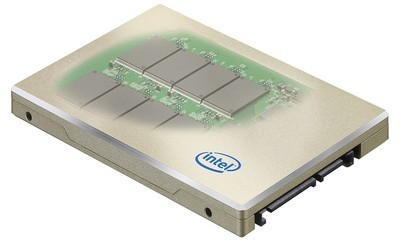Over the last few days, I’ve been taking some time to update the documentation of the Puget Systems marketing and advertising strategy. I’m finding that what I am really doing is documenting the culture of the company, because the way we approach advertising is a good window on the way we run our business. We are sometimes asked “Why haven’t I seen advertisements of your company?” That is a great question. What the inquirer is really trying to determine is whether Puget Systems is a legitimate, successful business. Most of the most successful PC manufacturers canvas heavily with advertisements, from magazine ads to website banners. Isn’t Puget Systems successful as well? If Puget Systems is successful, where are our advertisements? In answering these questions, we have a great opportunity to talk about something that makes Puget Systems special.

Specs Explained: CPU
With the advancement of computer technology, the number of specifications for each component in a computer has become overwhelming for those not deeply involved in the computer industry. In this article, we will explain all of the different specifications we list for CPUs and what they mean for you, the end user.
Product Review: Intel 520 SSDs (Cherryville)
In this article, we will be reviewing the speeds of each of the new Intel SSDs (60GB, 120GB, 180GB, 240GB and 480GB) codenamed Cherryville. Intel boasts speeds greater than 500MB/s for read and write, but it is common in the industry for the advertised speeds to be idealized. Because of this, we will be performing our own benchmark testing to find that real world speed of these new drives.
Review: Cooler Master SickleFlow 120mm Green LED Fan
Puget Systems has used many variations of the Antec TriCool 120mm fan over the years – including the red, blue and green LED versions in our colored case fan kits – due to their excellent noise to airflow ratio. However, Antec has recently discontinued the green LED version of the Antec Tricool, so we needed to find a good replacement fan for our green LED kits. In our search for a replacement, we found that the Cooler Master SickleFlow fan fits all of our requirements as a replacement fan to the long-lived green Antec TriCool.
Product Qualification: Asus P8Z68-M Pro
This motherboard is very nearly the ideal micro ATX motherboard for Intel 1155 CPUs; the chipset is well established to be a great performer with excellent reliability and all of the features present on this board have been well tested on other models. The main issue with this motherboard is the lack of an internal USB 3.0 header, although at the moment that is only a concern for a limited number of chassis.
Overclocking Done Right
One of the services we offer here at Puget Systems, aimed at high-end gamers and enthusiasts, is overclocking. It is a practice that has been around for quite some time which involves pushing the processor in a computer beyond its rated clock speed. This can provide an additional performance boost without the need to spend more money on a faster processor, though there are some trade-offs involved: additional heat and stress above and beyond what the CPU may have been designed to handle.

Solid State Drives: Tips for Reducing Used Capacity
When using a solid-state drive capacity is at a premium. The things that can be most affected by a SSD’s speed – the operating system itself, programs, and important files to be edited – need to have priority. There are a lot of other things that are located on the primary drive (C:) by default, though, so if you find yourself low on disk space here are some things to try!
Product Qualification: Asus Rampage IV Gene
The Asus Rampage IV Gene motherboard is a micro-ATX motherboard based on the Intel X79 chipset. Sandy Bridge-E has proven to be a powerhouse, but until not has been limited to full size computer systems. With this motherboard, Puget Systems will be able to offer smaller, micro-ATX computers with all the power of Sandy Bridge-E.
Product Qualification: Asus P8H61-I
Our Echo line of systems has always strived to balance size, cost and performance. The Asus P8H61-I has just the right balance of features and cost and comes in the small mini-ITX form factor. There are a few features missing on this motherboard (SATA 6Gb/s notably), but overall this is a great motherboard at a great price point.
Gaming Performance with Dual Monitors
Many of the computers we sell here at Puget Systems will be used for playing games, and we also get a lot of folks wanting to run two (or more) monitors. Sometimes those goals intersect, and in those situations I have had people ask if they needed to get a second video card so that using additional monitors will not impact their performance for gaming. I myself use two monitors here at work, which has been a great improvement in usability, but I don’t play games in the office. Because of that I’ve had to fall back on anecdotal evidence when this topic comes up, and make educated guesses depending on individual scenarios. Rather than continue in that approach, though, I wanted to get hard numbers to support my advice.




